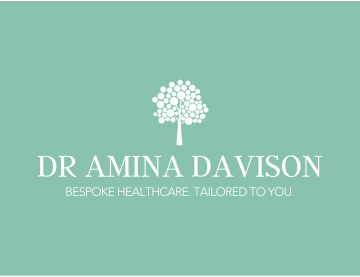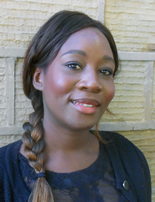5 Steps to Inside Out Beauty
- Inspired Medics

- Jul 24, 2018
- 3 min read
Updated: Feb 23, 2021
The well-known saying tells us that “beauty is only skin deep”, but did you know that if things are not running smoothly on the inside, this can show on the surface? Read on for my simple tips for healthy skin and a natural beauty that shines from the inside out.
1. LOVE YOUR GUT
Many common skin complaints can be caused by inflammation in the gut. Removing potentially troublesome foods that are well known for causing inflammation such as dairy and gluten may help. If you suspect you have food intolerance, a structured elimination diet under guidance from a nutritionist or doctor can help you identify the foods you are sensitive to.
Replenish with gut friendly bacteria to restore its natural protective barrier. Fermented foods are best such as kefir, kombucha and sauerkraut, but you could also take a good probiotic supplement. Support the growth of friendly bacteria with fibre-rich, prebiotic foods such as onions, leeks, garlic, carrots and Jerusalem artichokes.
Ensure you get targeted micronutrients to help repair the gut cells. Top of the list are omega 3 fats (wild salmon, sardines, fortified eggs), vitamin C, vitamin D, zinc and collagen.
2. EAT AN ANTI-INFLAMMATORY DIET HIGH IN ANTIOXIDANTS
There are so many ways of eating, what works for one person may not work for another. We are all individual and that is also true for what we eat. There are, however, some good habits that can apply to everyone.
Eat whole foods, mainly plants. Limit foods that are processed, which tend to be high in sugar, artificial sweetners and toxic trans-fats. Organic is better but non-organic is fine as long as fruit and vegetables are thoroughly washed before consumption. You can check out the Dirty Dozen list to see which foods are most likely to contain pesticides.
Be sure to include healthy fats such as nuts, seeds, avocado and oily fish which have powerful anti-inflammatory properties.
“Eat the Rainbow”. Brightly coloured fruits and vegetables contain antioxidants, these nutritional powerhouses support the body in mopping up free radicals in the body (free radicals are a natural by-product of chemical reactions in the body, but cause cell damage and ageing if not properly neutralised). Top of my list include dark berries, pomegranate, cruciferous veg (broccoli, kale, cabbage) and bitter leaves.
Protein is crucial for cell repair. Plant based sources include pulses, beans, nuts, chia and hemp seeds. You can also include lean, organic, grass-fed meat, wild fish and eggs.
3. WATER, WATER, WATER!
Your body is made up of at least 50% water. Your body uses water to eliminate toxins so it's important that you keep adequately topped up. Aim for around 8 glasses of water per day.
4. GET SOME SLEEP
Getting adequate sleep allows your body to do important housekeeping such as repairing and regenerating damaged cells, replenishing hormones, and digesting and utilising the nutrients you have eaten during the day.
For the best sleep, make sure your bedroom is dark and try to wake to natural light, this helps reset your natural body clock (circadian rhythm). Avoid looking at blue light for at least 1 hour before bed, this includes mobile phones, TV, laptops and tablets. Use this time to have a nice relaxing bath with some essential oils instead. And if you must do something in bed, read a good book with a cup of chamomile tea.
5. DON’T SWEAT THE SMALL STUFF
We are all living highly stressful lives these days, and for most of us there is little way to avoid it. However, chronic stress can upset the delicate balance of our hormones, leading to chronic health problems including issues with our skin and premature ageing. Teaching your body to relax on a regular basis can help to build up its natural resilience, making you more able to cope with the stresses that daily life throws at you. Try to balance physical exercise with a short but regular relaxation practice such as mindfulness, meditation or yoga. Try apps like Headspace or Calm.
Written by guest article writer Dr Amina Davison,BMBS, BMedSci, MRCS, MRCGP, AFMCP. Private GP and Functional Medicine Doctor.
View our digital courses












FixanPhone also offers the service of laptop repairs for any type of software or hardware issues. We understand how it feels to have a fault in your laptop. We know how important the laptop is in your daily life and work. It's hard to pass a day without a laptop for a working person in this digital world. The need for Laptop's power is increasing in day to day activities, and every day there are a lot of people with some faults in their machines that come to us. We are providing the best services for laptop repairs in Harrow, London, and making sure we do our best every day. Every Time and every day it needs the same back…